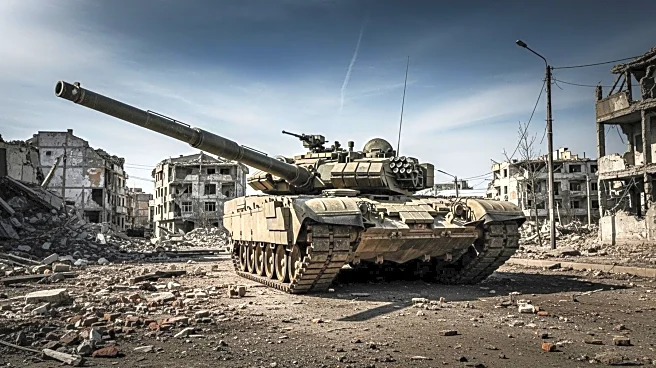What's Happening?
The Israeli military has declared Gaza's largest city a combat zone as it resumes its offensive, leading to a significant increase in the Palestinian death toll, which has now surpassed 63,000. The decision comes amid international condemnation and follows weeks of preparatory strikes. The military aims to dismantle Hamas' capabilities in the city, which it considers a stronghold. Despite calls for evacuation, many residents and aid groups remain in the city, citing the lack of safe refuge elsewhere. The situation is exacerbated by the ongoing humanitarian crisis, with reports of malnutrition-related deaths and a looming famine.
Why It's Important?
The escalation in Gaza has profound implications for regional stability and humanitarian conditions. The offensive threatens to further deteriorate living conditions for the two million people in Gaza, many of whom are already displaced and facing severe shortages of food and medical supplies. The international community, including the United Nations, has expressed concern over the humanitarian impact, fearing a loss of hospital capacity and increased civilian casualties. The conflict also poses challenges for diplomatic relations, as global leaders call for restraint and humanitarian access.
What's Next?
The Israeli military plans to intensify its strikes until all hostages are recovered and Hamas is dismantled. This could lead to further displacement and casualties among civilians. Aid groups and the UN are likely to continue advocating for humanitarian pauses and increased aid delivery. The situation may prompt further international diplomatic efforts to broker a ceasefire or peace negotiations. The recovery of hostages remains a priority for Israel, with ongoing efforts to negotiate their release.
Beyond the Headlines
The conflict in Gaza raises ethical questions about the conduct of war and the protection of civilians. The humanitarian crisis highlights the need for international intervention and support for displaced populations. Long-term implications include potential shifts in regional alliances and the role of international organizations in conflict resolution.









